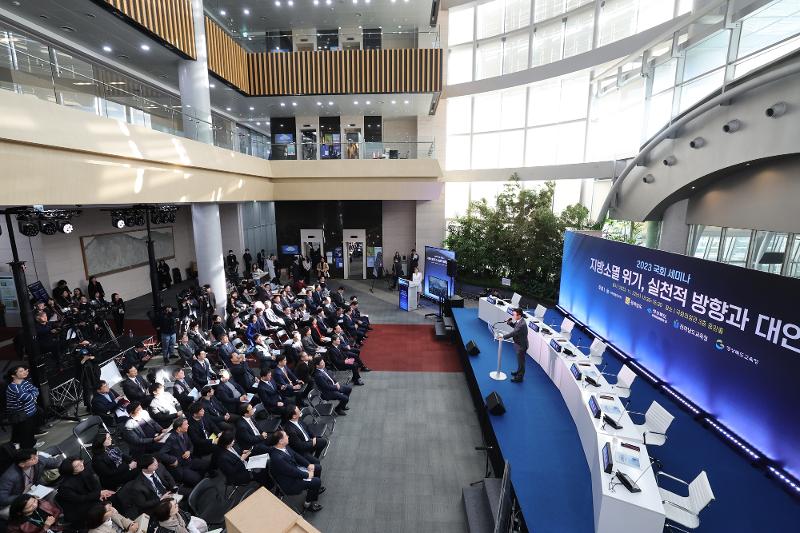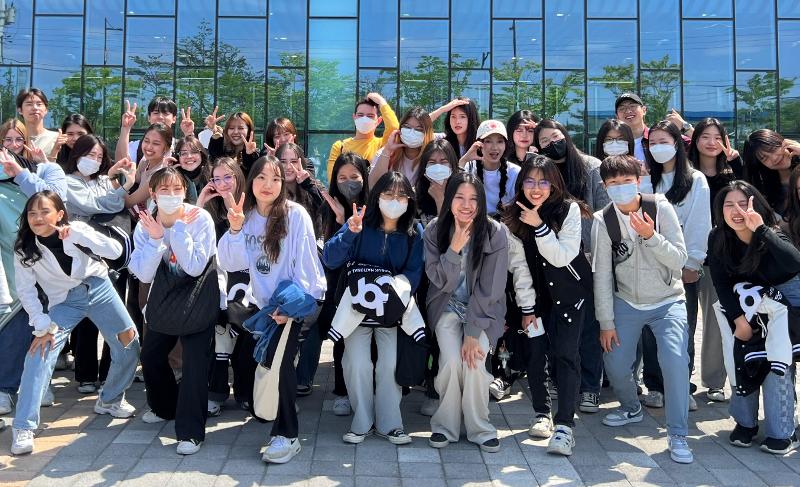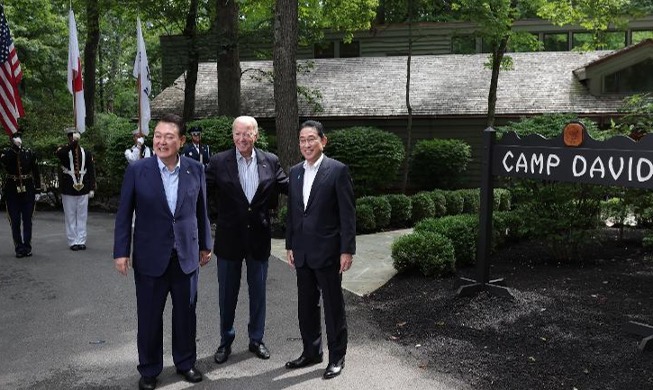-
 Korea.net's 24-hour YouTube channel
Korea.net's 24-hour YouTube channel- NEWS FOCUS
- ABOUT KOREA
- EVENTS
- RESOURCES
- GOVERNMENT
- ABOUT US


With the country's declining population and the hollowing out of the provinces due to the low birth rate and rapid aging, each local government is striving to attract foreign residents. Shown is Gyeongsangbuk-do Province Gov. Lee Cheol-woo on Nov. 22 last year speaking at a seminar at the National Assembly on the topic "Risk of Regional Extinction, Practical Direction and Alternatives." (Gyeongsangbuk-do Province)
By Yoon Seungjin
The number of people in the country is rapidly shrinking due to the low birth rate and rapidly aging population, accelerating the decline of rural areas.
A 2023 study by Statistics Korea predicted that the population will fall to 47.11 million by 2050 and further to 40 million by 2072. Many regions outside of the Seoul metropolitan area are facing "population extinction," a serious danger to society.
Highlighting this concern, another study last year by the Korea Employment Information Service found that over half (118 or 52%) of domestic cities, counties and districts outside of the capital area face depopulation risk.
To take on the challenges of reversing population decline and reviving provincial economies, local governments are striving to attract people from abroad through organizations dedicated to immigration policy and development models for attracting a more international populace.

Each local government in the nation has introduced study abroad, employment and startup systems to attract foreign residents. Chungcheongbuk-do Province has launched an international student system with the goal of attracting 10,000 foreign students by next year. (Chungbuk National University)
First, Gyeongsangbuk-do Province last year launched a foreign community department under its local policy bureau to handle immigration and expat affairs. In February, it also opened a global Korean-language institute at Kyungpook National University to help foreign students and workers settle in the region.
In a first for a local government in the country, the province on April 2 announced a comprehensive immigration policy to attract and support foreign talent for purposes like studying, finding jobs, starting businesses and even moving there.
Facing a shortage of manufacturing jobs, Gyeongsangnam-do Province raised the number of foreign industrial workers to 67,000 this year. It also proposed and secured in January new visa quotas for the shipbuilding and aerospace sectors.
In addition, the province will explore setting up a foreign labor council and help foreign workers settle there and raise their convenience.
Focusing on a different challenge, Chungcheongbuk-do Province in January launched its exclusive international student plan to take on its falling university enrollment due to population decline.
The province offers stable jobs and work-study opportunities for foreign students. The first 50 selected master's and Ph.D. students will receive full tuition waivers and instruction in Korean. This initiative seeks to attract 10,000 foreign students by 2025.
Last year, Jeollanam-do Province announced an organizational reform plan to respond to the provincial extinction crisis. It upgraded its population and youth policy bureau to the youth immigration bureau (Level-3 task force) and added the departments of population policy and youth hope.
In line with the announcement of its new immigration management office, the province will also preemptively respond by adding an immigration policy department to overcome the population cliff. In addition, the standard for calculating the employment ratio of foreign workers on the E-7 visa was revised in March to exclude skilled staff and regional-specific visas, accelerating the stimulation of supply and demand of foreign workers.
Gangwon-do Province in December last year launched a task force on policy for foreign nationals on devising an innovative plan to expand the number of skilled foreign workers on the K-point E74 visa. Preparations have apparently begun to promote projects for local government recommendation visas such as the metropolitan local government recommendation system and regional specialized visas.
Within the first half of this year, the task force for policy toward foreign nationals under the province's balanced development department will be made into a formal organization to set policy toward expats and immigration and promote activities to attract people from abroad.

People at a job fair for international students with region-specific visas on March 17, 2023, listen to the organizer's explanation at the gymnasium of Daegu University in Daegu. (Gyeongsangbuk-do Province)
In 2022, the Ministry of Justice also responded to local government efforts to attract foreign residents through the launch of a region-specific visa system. This year will see two visa types -- superior regional human resources (F-2-R) and region-specific ethnic Koreans (F-4-R) -- with over 60 local governments participating in the project.
The first type of visa is for foreign nationals with an income equal to 70% or more of gross national income per capita or holders of a bachelor's or higher degree from a domestic university who have lived in the recruitment area for over five five years and have jobs or their own businesses.
Additional requirements include obtaining a score of Level 3 or higher on the Test of Proficiency in Korean.
Jeong Myeong-ok, head of the Chungcheongnam-do government's job and enterprise support department, last month told a meeting of public servants in charge of the region-specific visa project, "To resolve the labor shortage in industry, we will actively utilize the region-specific visa project and form a cooperative system to promote the inflow and settlement of foreign workers."
scf2979@korea.kr
Most popular
- 76 national heritage sites to allow free admission from May 15
- First Korean-style 'taxi driver' diner opened in New York
- Africa's appeal on full display at downtown festival in Seoul
- UK univ., KCC in London host Korea Day event in Sheffield
- Northern Seoul suburb hosts festival of 100 million flowers













